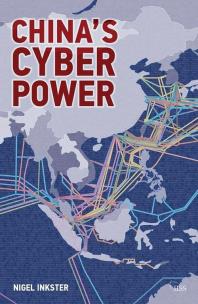- Regulamin
- Koszty dostawy
- Kontakt
- Dziś w ofercie 236 549 produktów
KSIĄŻKI
- Albumy
- Beletrystyka
- Biografie
- Dla dzieci i młodzieży
- Edukacja
- Ekonomia i biznes
- Ezoteryka
- Historia
- Informatyka
- Kalendarze
- Komiksy
- Kryminał i sensacja
- Kultura i sztuka
- Literatura faktu
- Literatura kobieca
- Literatura piękna
- Medycyna
- Nauka języków obcych
- Nauki humanistyczne
- Nauki przyrodnicze
- Nauki ścisłe
- Podręczniki
- Poradniki
- Prawo i administracja
- Przewodniki i podróże
- Psychologia
- Religia
- Sport
- Technika
- Zdrowie i uroda
ZABAWKI
- Artykuły dla niemowląt
- Bączki
- Bujaki i skoczki
- Ciągnij / pchaj
- Dla niemowlaka
- Grzechotki i gryzaki
- Karuzele i pozytywki
- Maty i centra zabaw
- Projektory i lampki
- Sortery i piramidki
- Zabawki
- Edukacyjne i kreatywne
- Figurki
- Klocki
- Lalki
- Pojazdy
- Pluszaki i maskotki
- Sport i rekreacja
- Zabawa w dom
- Zabawki drewniane
- Puzzle
- Do 200 elementów
- 201-500 elementów
- 501-1000 elementów
- Ponad 1000 elementów
- Puzzle 3D
ART. PAP
- Artykuły biurowe
- Artykuły piśmiennicze
- Bloczki i kartki samoprzylepne
- Dziurkacze
- Kalkulatory
- Nożyczki i nożyki
- Skoroszyty
- Teczki
- Wizytowniki
- Zszywacze
- Artykuły szkolne
- Akcesoria szkolne
- Modelowanie
- Notatniki i zeszyty
- Piórniki
- Plecaki i torby
- Pojemniki na śniadanie
- Pomoce naukowe
- Przybory matematyczne
- Przybory rysunkowe
- Upominki i gadżety
- Akcesoria do książek
- Artykuły balowe
- Breloki i zawieszki
- Drobiazgi, różności
- Kubki
- Oferta Świąteczna
- Papeteria, kartki i naklejki
- Skarpetki Many Mornings
- Upominki
GRY
MULTIMEDIA
- Audiobooki
- Beletrystyka
- Biografie i wspomnienia
- Dla dzieci i młodzieży
- Fantastyka
- Filozofia i religia
- Historia
- Literatura faktu i reportaż
- Poradniki
- Sensacja i kryminał
- Filmy DVD/BD
- Animowane
- Biograficzne
- Fantasy
- Horrory
- Komedie
- Romanse
- Science Fiction
- Sensacyjne / kino akcji
- Thrillery
- Muzyka CD
- Alternatywna
- Blues
- Dla dzieci
- Jazz
- Klasyczna
- Piosenka aktorska i poetycka
- Pop
- Rock
- Świąteczna i kolędy
- Akcesoria GSM
- Głośniki
- Kable i adaptery
- Klawiatury
- Myszy
- Słuchawki
PROMOCJE
ZDROWIE
LEGO

China's Cyber Power
Autor: Inkster Nigel
Wydawca:
Routledge
ISBN:
9781138211162
EAN:
9781138211162
oprawa:
Miękka
format:
15.5x23.5cm
język:
angielski
liczba stron:
156
rok wydania:
2016
(0) Sprawdź recenzje
Opis produktu
Zasady bezpieczeństwa
China’s emergence as a major global power is reshaping the cyber domain. The country has the world’s largest internet-user community, a growing economic footprint and increasingly capable military and intelligence services. Harnessing these assets, it is pursuing a patient, assertive foreign policy that seeks to determine how information and communications technologies are governed and deployed. This policy is likely to have significant normative impact, with potentially adverse implications for a global order that has been shaped by Western liberal democracies. And, even as China goes out into the world, there are signs that new technologies are becoming powerful tools for domestic social control and the suppression of dissent abroad.
Western policymakers are struggling to meet this challenge. While there is much potential for good in a self-confident China that is willing to invest in the global commons, there is no guarantee that the country’s growth and modernisation will lead inexorably to democratic political reform. This Adelphi book examines the political, historical and cultural development of China’s cyber power, in light of its evolving internet, intelligence structures, military capabilities and approach to global governance. As China attempts to gain the economic benefits that come with global connectivity while excluding information seen as a threat to stability, the West will be forced to adjust to a world in which its technological edge is fast eroding and can no longer be taken for granted.
CENA:
57,26
zł
Cena detaliczna:
68,00 zł
16%
rabatu
Najniższa cena z ostatnich 30 dni: 57,39 zł
Produkt niedostępny
Uwaga!!!
Ten produkt jest zapowiedzią. Realizacja Twojego zamówienia ulegnie przez to wydłużeniu do czasu premiery tej pozycji. Czy chcesz dodać ten produkt do koszyka?


Wybierz wariant produktu
